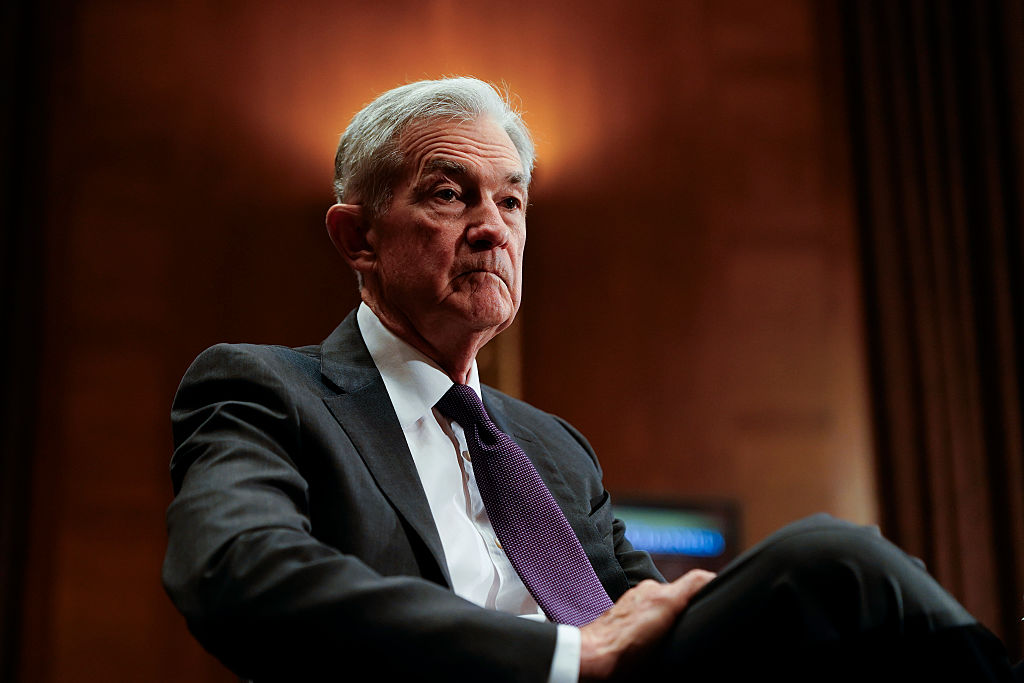US inflation spiked in June. Can this really still be transitory?
US inflation spiked unexpectedly in June, raising the prospect that this isn't just a transitory post-pandemic phenomenon. Saloni Sardana looks behind the figures.


Get the latest financial news, insights and expert analysis from our award-winning MoneyWeek team, to help you understand what really matters when it comes to your finances.
You are now subscribed
Your newsletter sign-up was successful
Want to add more newsletters?

Twice daily
MoneyWeek
Get the latest financial news, insights and expert analysis from our award-winning MoneyWeek team, to help you understand what really matters when it comes to your finances.

Four times a week
Look After My Bills
Sign up to our free money-saving newsletter, filled with the latest news and expert advice to help you find the best tips and deals for managing your bills. Start saving today!
Inflationistas received their latest sign on Tuesday that the US economy is overheating and inflation may not be so transitory after all.
Consumer prices rose 0.9% between May and June, said the Bureau of Labor Statistics showed.
This was much higher than economists at Bloomberg were predicting; they had estimated that prices would rise by just 0.5%. But Tuesday’s reading marked the highest one-month change in 13 years, since June 2008.
MoneyWeek
Subscribe to MoneyWeek today and get your first six magazine issues absolutely FREE

Sign up to Money Morning
Don't miss the latest investment and personal finances news, market analysis, plus money-saving tips with our free twice-daily newsletter
Don't miss the latest investment and personal finances news, market analysis, plus money-saving tips with our free twice-daily newsletter
The consumer price index (CPI) rose 5.4% in June, the fastest pace since August 2008. That was also higher than the 5% rise in May and also beat economists’ predictions of a 4.9% rise.
Excluding volatile components such as energy and food, core CPI jumped to 4.5% in June year-on-year, surpassing the 3.8% reading in May.
Why is US inflation so high?
Market watchers have long been scrutinising US inflation figures for signs of whether the Federal Reserve – the US central bank – will gradually begin to reduce the extraordinary stimulus measures it took during the pandemic and trillions of dollars’ worth of stimulus it has pumped to help the economy survive the pandemic.
After spending months insisting that it will not raise interest rates until 2023, the Fed changed course and stunned markets last month when it raised its inflation forecast and conceded that we may see some interest rate rises by the end of 2023
A third of the rise in CPI last month came from a surge in second-hand vehicle prices, which rose by 10.5% in June compared to May.
The higher prices were also evident in used airline fares, hotel room rates and many other sectors that were hit hardest by the pandemic.
“The June CPI report showed that everything is getting more expensive for the US consumer… Wall Street reacted strongly to a hotter than expected CPI data that sent short-end Treasury yields higher,” said Edward Moya, chief market analyst at OANDA.
All eyes will now be on Fed chair Jerome Powell’s testimony on Thursday and Friday when he is due to appear on Capitol Hill and give an update on the future state of monetary policy.
Tuesday’s reading also makes it harder for Powell to advocate that looser monetary policies still need to remain in place.
US stocks fell at their open after the inflation data was released.
The strong reading raises odds of an earlier tapering
Tuesday’s strong inflation reading also raises the odds that the Fed may make a taper announcement –effectively indicating when it may start rolling back $120bn of bond purchases – at the Jackson Hole Symposium in August.
“A lot of this still looks transitory, but if prices continue to stay elevated, the Fed will have to concede that parts of the surge prices will be transitory,” adds Moya.
Ben Laidler, global markets strategist at multi-asset investment platform eToro, says June’s figures may reverse a sharp decline in both inflation expectations and ten-year yields as the market anticipates an earlier loosening by the Fed.
“We may also see renewed interest in more cyclical and deep-value sectors, such as financials and commodities, at the expense of the high-flying tech sector,” adds Laidler.
So hate it, loathe it, accept it or deny it, inflation is creeping up. So the best thing for investors to do is to inflation proof their portfolios.
Get the latest financial news, insights and expert analysis from our award-winning MoneyWeek team, to help you understand what really matters when it comes to your finances.
Saloni is a web writer for MoneyWeek focusing on personal finance and global financial markets. Her work has appeared in FTAdviser (part of the Financial Times), Business Insider and City A.M, among other publications. She holds a masters in international journalism from City, University of London.
Follow her on Twitter at @sardana_saloni
-
 Should you buy an active ETF?
Should you buy an active ETF?ETFs are often mischaracterised as passive products, but they can be a convenient way to add active management to your portfolio
-
 Power up your pension before 5 April – easy ways to save before the tax year end
Power up your pension before 5 April – easy ways to save before the tax year endWith the end of the tax year looming, pension savers currently have a window to review and maximise what’s going into their retirement funds – we look at how
-
 How a dovish Federal Reserve could affect you
How a dovish Federal Reserve could affect youTrump’s pick for the US Federal Reserve is not so much of a yes-man as his rival, but interest rates will still come down quickly, says Cris Sholto Heaton
-
 New Federal Reserve chair Kevin Warsh has his work cut out
New Federal Reserve chair Kevin Warsh has his work cut outOpinion Kevin Warsh must make it clear that he, not Trump, is in charge at the Fed. If he doesn't, the US dollar and Treasury bills sell-off will start all over again
-
 'Investors should brace for Trump’s great inflation'
'Investors should brace for Trump’s great inflation'Opinion Donald Trump's actions against Federal Reserve chair Jerome Powell will likely stoke rising prices. Investors should prepare for the worst, says Matthew Lynn
-
 'Governments are launching an assault on the independence of central banks'
'Governments are launching an assault on the independence of central banks'Opinion Say goodbye to the era of central bank orthodoxy and hello to the new era of central bank dependency, says Jeremy McKeown
-
 Will Donald Trump sack Jerome Powell, the Federal Reserve chief?
Will Donald Trump sack Jerome Powell, the Federal Reserve chief?It seems clear that Trump would like to sack Jerome Powell if he could only find a constitutional cause. Why, and what would it mean for financial markets?
-
 What's behind the big shift in Japanese government bonds?
What's behind the big shift in Japanese government bonds?Rising long-term Japanese government bond yields point to growing nervousness about the future – and not just inflation
-
 Can Donald Trump fire Jay Powell – and what do his threats mean for investors?
Can Donald Trump fire Jay Powell – and what do his threats mean for investors?Donald Trump has been vocal in his criticism of Jerome "Jay" Powell, chairman of the Federal Reserve. What do his threats to fire him mean for markets and investors?
-
 Do we need central banks, or is it time to privatise money?
Do we need central banks, or is it time to privatise money?Analysis Free banking is one alternative to central banks, but would switching to a radical new system be worth the risk?
